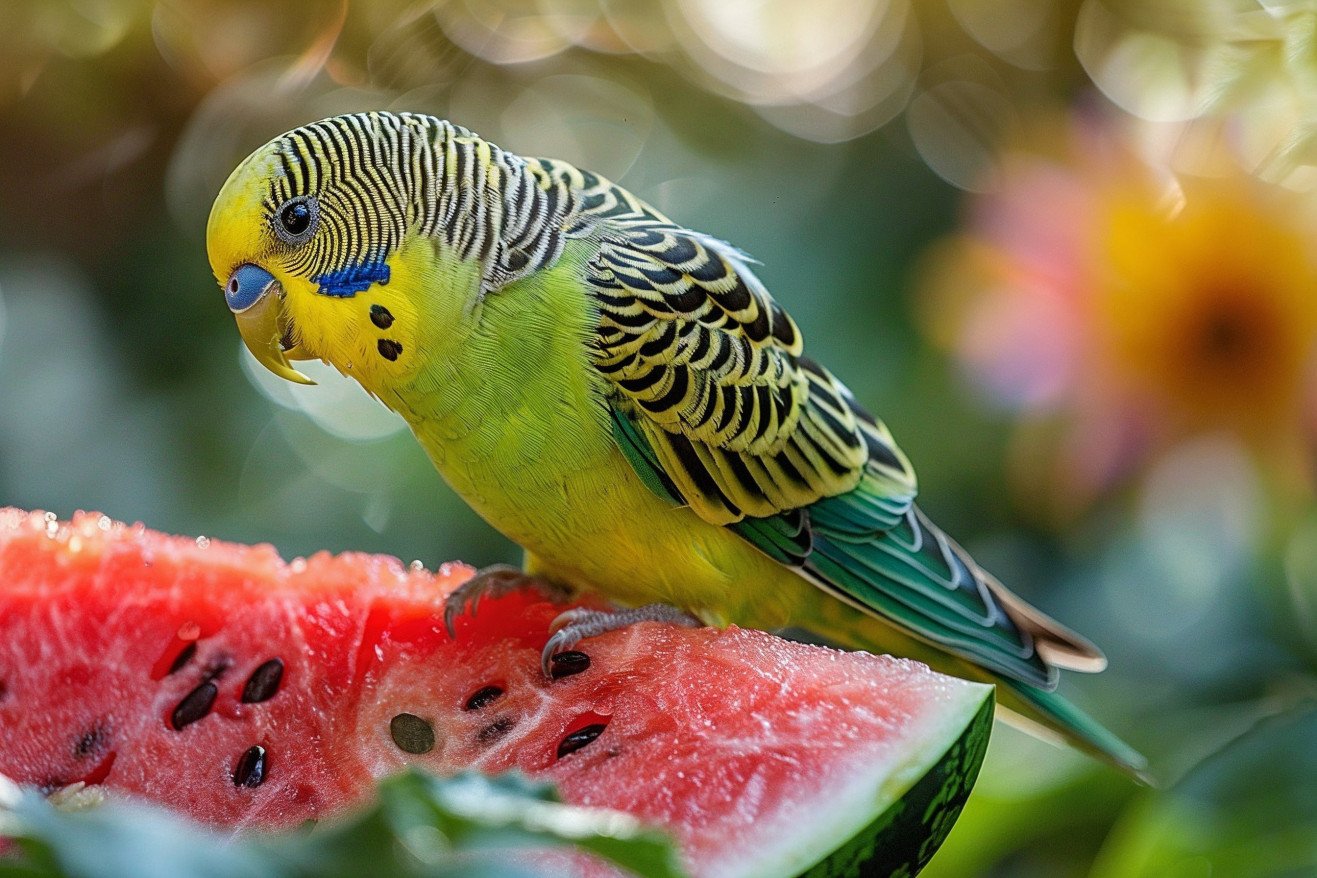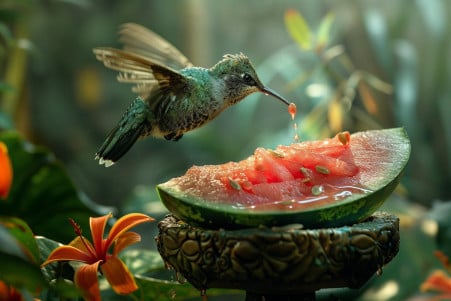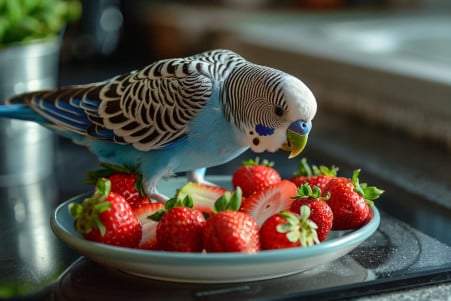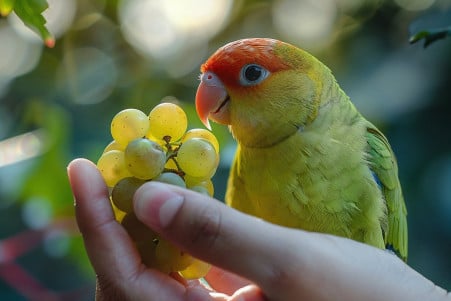Can Parakeets Eat Watermelon? A Healthy Summer Snack
27 May 2024 • Updated 27 May 2024

If you're wondering if your pet parakeet can enjoy a juicy piece of watermelon, the answer is yes! However, parakeets should only have watermelon as a treat and not as a regular part of their diet. Watermelon is high in water and natural sugars, so it can lead to digestive issues and even obesity if it's given to parakeets too often. It's also important to always remove the seeds and rind before feeding watermelon to your parakeet.
This article will cover the nutritional benefits of watermelon for parakeets and how much watermelon is safe for them to eat based on information from avian vets and ornithologists. Knowing how much watermelon to give your parakeet and how often to give it to them will help you make sure they can enjoy this healthy, hydrating summer snack without negatively impacting their health.
Can parakeets eat watermelon?
What Do Parakeets Eat in the Wild?
In the wild, parakeets are omnivores and eat a variety of foods including seeds, pellets, fruits, vegetables, and occasional nuts. A balanced diet is important to ensure that parakeets are healthy, have enough energy, and can grow their feathers properly.
While seeds and pellets should be the main part of their diet, fresh fruits and vegetables can be given as a supplement to provide extra nutrients and hydration. However, some foods, such as avocado, chocolate, and onions, are toxic and should never be fed to parakeets.
When trying new foods, it's important to remember that parakeets can have sensitive stomachs, and sudden dietary changes can lead to digestive problems. This is why it's important to introduce new foods slowly and pay attention to how your parakeet reacts to them. Doing so will help you keep your parakeet's digestive system healthy. If you make sure to give your parakeet a balanced diet that's full of nutrients, you'll be able to help them stay healthy and keep their feathers and energy levels up. This will also give you a good base to start giving them healthy treats like watermelon.
Watermelon for Hydration and Nutrients
Watermelon is a great way to keep your budgie hydrated since it is made up of 92% water. It also has important nutrients like lycopene, antioxidants, vitamins, and minerals, which can help with a variety of health issues. According to Parrot Junkie, watermelon has vitamins C, A, and choline, which can help with the immune system, eyesight and feather health, and fat metabolism and memory.
However, because of the high water content, watermelon should be given in moderation to prevent digestive problems. ZuPreem Pet suggests that 1-2 small slices or cubes of watermelon a week is a good amount to give your bird as a treat. You can serve it in a bowl, mix it with seeds, or even hand-feed it to your bird to help with socialization.
How to Prepare and Serve Watermelon to Parakeets
Make sure to remove the rind and seeds before feeding watermelon to your parakeet, as they can be choking hazards or cause digestive upset, says Pet Keen. Cut the watermelon into small, bite-sized pieces or cubes to make it easier for your parakeet to eat.
Serve the watermelon in a shallow dish or bowl, and take away any uneaten pieces after a few hours to keep it from spoiling. The Kitchn says that cut watermelon can be stored in the fridge for up to a week or frozen for longer storage, but it should be thawed and brought to room temperature before serving.
Try serving the watermelon as part of a foraging experience or mix it with other healthy treats to promote natural foraging behaviors. This can help ensure that your parakeet's mealtimes are as stimulating and enriching as possible.
How to Introduce New Foods to Parakeets: Tips and Warnings
Since parakeets can be wary of new foods, it's important to be patient and take your time when introducing new items. The author of the Talk Budgies Forums post found that when they tried to increase their budgie's consumption of fresh foods by mixing mashed sweet potato or mango with millet seed, their budgie would pick out the millet and eat some of the mashed fruit and vegetable. This caused the budgie to foam at the beak, regurgitate, and spit, but the reaction was short-lived.
The author said that the reaction their budgie had was scary and made them question whether mixing new foods with seed is a good way to introduce them. The Parrot Forum recommends introducing fruits and vegetables to a baby bird's diet slowly, and Northern Parrots has a list of suggestions that includes mixing new foods with old favorites, hand-feeding, and turning the introduction of new foods into a game where the bird has to forage for them. Paying attention to your bird's response and praising them for any interaction with new foods, even if they don't eat them right away, can help them become more accepting over time.
Conclusion: Feed Watermelon in Moderation for a Healthy Parakeet
Watermelon can be a healthy and hydrating addition to your parakeet's diet as long as you feed it in moderation and as part of a balanced diet. Always remove the rind and seeds, and feed your bird an appropriate portion to avoid digestive issues and obesity.
Introduce watermelon slowly and watch your bird's reaction to make sure they tolerate it well. You can also try different ways of serving watermelon, like mixing it with seeds or using it in foraging toys, to make feeding time more fun and interesting. By following these tips, you can ensure that your parakeet can enjoy watermelon safely and healthily.


